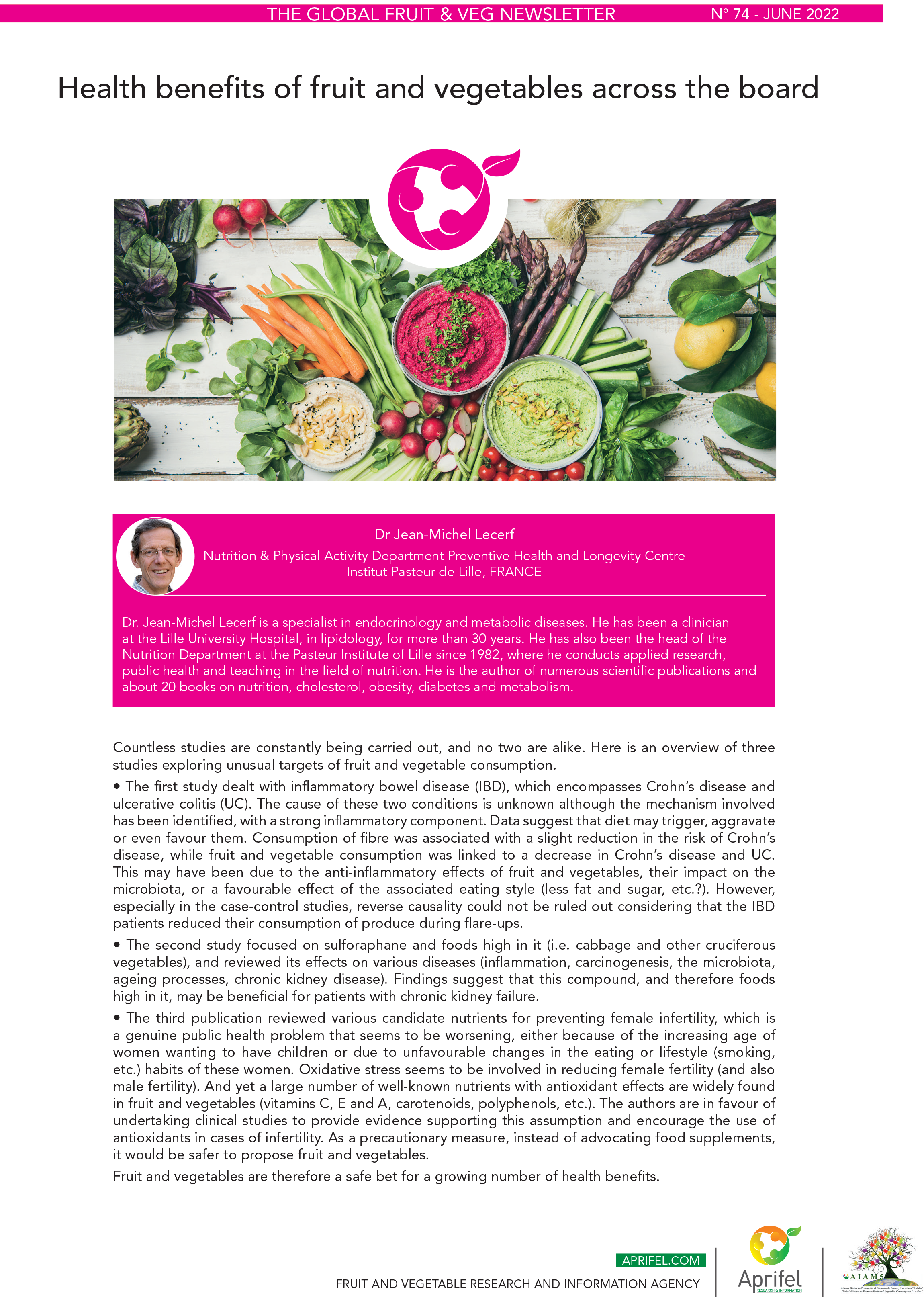Intake of dietary fiber, fruit, and vegetables and risk of inflammatory bowel disease: a systematic review and meta-analysis

Inflammatory bowel disease (IBD) occurs in two forms, Crohn disease (CD) and ulcerative colitis (UC). Its prevalence is increasing worldwide, with more than 3 million people affected in Europe and 1.5 million in the U.S. (Park, 2014; Burisch, 2013). Factors such as an alteration in the gut microbiota, taking oral contraceptives, living in urban areas, and having a stressful lifestyle play an important role in IBD development. However, there is a lack of information regarding the contribution of dietary factors in IBD pathogenesis (Rampton, 2011). Several prospective studies have been conducted on the association between dietary fiber, fruit, and vegetable intake and IBD, but there is no meta-analysis that summarize these publications.
Therefore, the present meta-analysis aims to summarize the findings from these publications on the association between dietary fiber, fruit, and vegetable intake and the risk of IBD.
Dietary fiber intake is significantly associated with a reduced risk of Crohn disease and IBD, but not with ulcerative colitis
Combining 6 effect sizes from 5 studies revealed a significant inverse association between dietary fiber intake and Crohn disease.
When searching for nonlinear association, results also showed a significant association such that the highest risk reduction of Crohn disease was seen for fiber intake >22 g/d.
In the linear association, we found that an additional 10 g/d of fiber intake was associated with a 14% risk reduction of Crohn disease (cf. Table 1).
However, regarding ulcerative colitis, no significant association was noted by combining data from 6 prospective cohort studies. Linear and nonlinear association were not significant neither.
On the other hand, when studies on Crohn disease and ulcerative colitis were combined, a significant inverse association was found between dietary fiber intake and risk of IBD.
Dietary intakes of fruit and vegetables are significantly associated with a reduced risk of ulcerative colitis, Crohn disease and IBD
Data combined from 4 studies showed a significant inverse association between fruit consumption and the risk of ulcerative colitis: individuals who were in the highest category of fruit intake had 31% lower risk of ulcerative colitis compared with those in the lowest category. For vegetables, the association was also significant, with 44% lower risk of ulcerative colitis in individuals in the top category of vegetable consumption compared with those in the bottom category.
Regarding Crohn disease, associations were also significant for fruit and vegetable consumption. Findings showed that individuals with the highest fruit consumption had a lower risk of Crohn disease development compared with those with the lowest intake. A significant association was also observed between a high intake of vegetables and a reduced risk of Crohn disease based on data for 3 studies. An additional 1 serving of fruit and 1 serving of vegetable per day was respectively associated with a 19% and 11% lower risk of Crohn disease according to nonlinear association (cf. Table 1).

When combining studies on Crohn disease and ulcerative colitis, fruit consumption was significantly associated with IBD risk. Vegetables consumption was also significantly associated with a reduced risk of IBD, so that those with the highest intake of vegetables had a 46% lower risk of IBD development compared with those with the lowest intake.
Based on : Milajerdi A, et al. Association of Dietary Fiber, Fruit, and Vegetable Consumption with Risk of Inflammatory Bowel Disease: A Systematic Review and Meta-Analysis. Adv Nutr. 2021 Jun 1;12(3):735-743.
- A significant association was found between dietary fiber and a reduced risk of Crohn disease and IBD, but not with ulcerative colitis.
- Dietary intake of fruit was significantly associated with a reduced risk of ulcerative colitis, Crohn disease and IBD.
- Vegetable consumption was significantly associated with a reduced risk of ulcerative colitis, Crohn disease, and IBD.
- Further prospective studies and clinical trials are needed to expand knowledge about the association in this regard.

